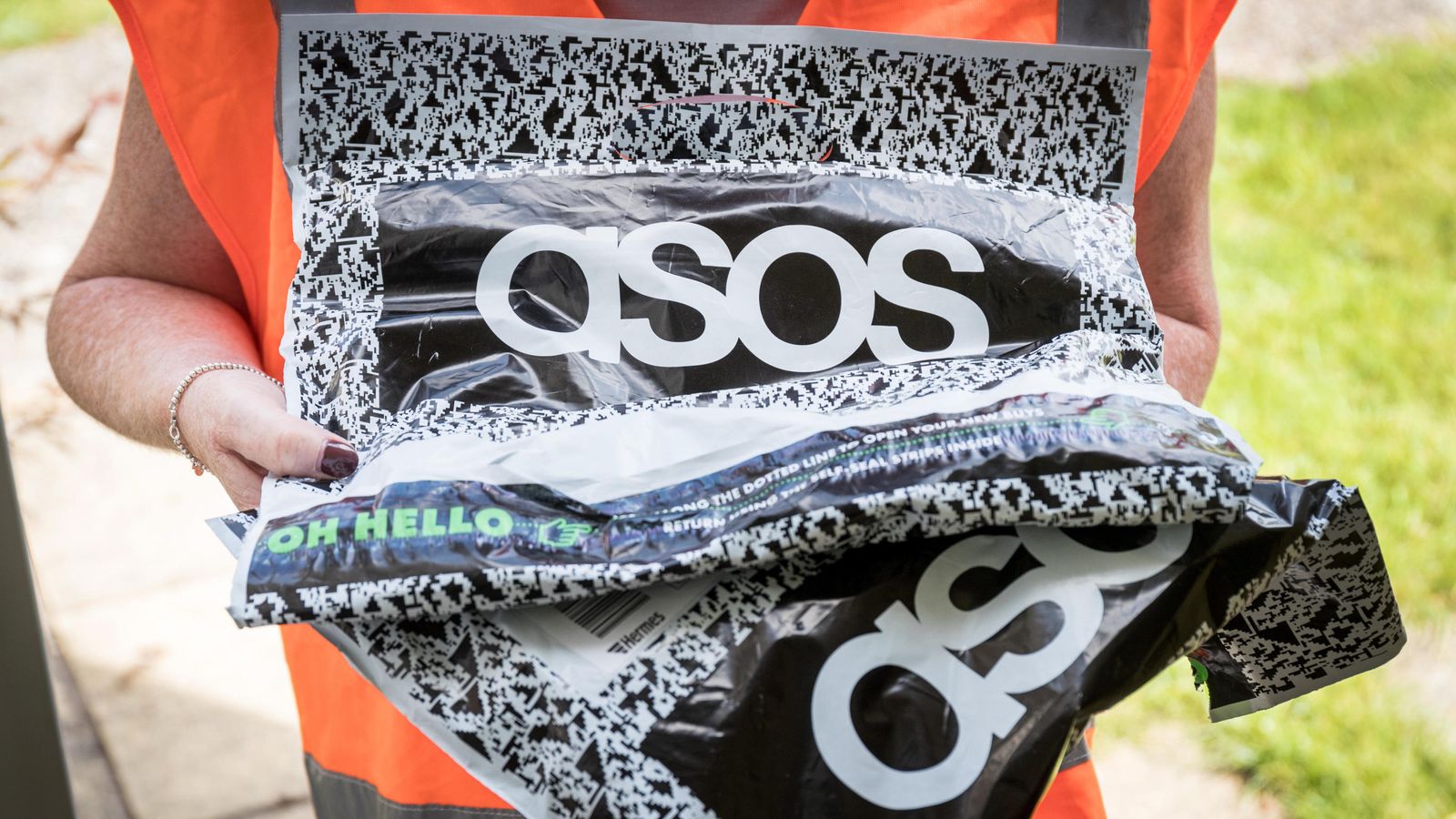Asos, the online fashion retailer, is facing deepening troubles after its biggest lenders hired advisers in a move that could pave the way for a formal financial restructuring.
Sky News has learnt that the London-listed company, which is due to report its full-year results to the City on Wednesday, recently approached the banks behind its £350m revolving credit facility to seek an amendment to its borrowing agreements.
City sources said this weekend that lenders including Barclays, HSBC and Lloyds Banking Group were lining up AlixPartners and law firm Clifford Chance to advise them on the unfolding situation.
Asos and its banking syndicate are said to be in advanced talks to agree on the amendment.
However, at least one major trade credit insurer which provides cover to Asos’s suppliers in the event of its failure to pay them is said to have decided to reduce its support.
That move may force Asos to pay for products up-front, tightening the squeeze on the company’s cashflow.
One insider said the discussion about a covenant amendment could be followed by an independent business review (IBR) to provide a more comprehensive assessment of Asos’s financial prospects.
Having sealed her chancellor’s fate, the markets could seal the prime minister’s fate
Markets react negatively to Truss speech spelling out corporation tax U-turn
Cost of living: Millions to see annual mortgage payments rise by more than £5,000 in next two years, Resolution Foundation warns
A broader restructuring of the company’s balance sheet has not been ruled out, although it is not currently on the board’s or lenders’ immediate agenda.
The banks’ move to recruit specialist financial advice follows a torrid period in which Asos has lost almost 80% of its value in just 12 months.
Asos’s £350m bank facility matures in July 2024, and a person close to the company said on Saturday that the lenders’ decision was “standard”.
Its request for a covenant amendment was designed to ensure “optimal financial flexibility” at a time of economic turmoil, the person added.
Inflationary pressures and the fading of investors’ assumptions that soaring demand during the COVID pandemic would be sustainable have coalesced into a string of profit warnings.
Last month, it said profits for the year ending August 31 would be “around the bottom end” of a previously indicated £20m-£60m range.
The intensifying gloom around the UK economy is beginning to have a profound impact on consumer-facing businesses as the threat of soaring mortgage costs, energy prices and other inflationary pressures hurt sectors such as retail and hospitality.
Next week, Asos’s new chief executive, José Antonio Ramos Calamonte, is expected to set out details of his plan to improve the company’s performance alongside its results.
His appointment, which was announced in June, came as part of a broader boardroom overhaul which saw Ian Dyson step down after a brief stint as chairman and Jorgen Lindemann named as his successor.
The new CEO was previously Asos’s chief commercial officer.
Asos saw its valuation surge to make it one of the London stock market’s most prized fashion retailers.
During the pandemic, it took advantage of its buoyant performance to acquire the TopShop brand from the remnants of Sir Philip Green’s bankrupt high street retailer, Arcadia Group.
It also raised close to £250m from a share sale to enable it to take advantage of opportunities arising from the dislocation caused by COVID-19.
Asos declined to comment on its lenders’ move to hire financial advisers, but said in relation to the withdrawal of trade credit insurance: “This happened towards the end of August and there has been no adverse impact on trading relationships with our suppliers.






